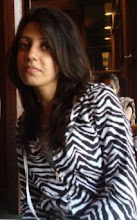If matter acting on matter for a sufficient period of time can create anything, then I should be able to go out to the Mountains of Colorado and find naturally-occurring computers, cameras, and cell phones. As we've seen, those inorganic devices are much less complex than a "simple" organic bacterium. Yet, most people would find my statement to be "silly" at best. Why? Whether organic or inorganic, the complexity and design is obvious.
To take this concept to a simple level, I examined the watch on my wrist (mine is digital). I contemplated the interdependent system of silicon chips, wires, and LED displays? Actually, by today's technological standards, that's a pretty simple device. However, is there any question that it was created by a group of designers, handed off to a team of mechanical engineers, and then placed into production by a team of automation specialists?
Then I took a minute to look at the wrist under my watch. I've grown comfortable with its apparent simplicity. I looked closer at the skin and hair follicles. I touched them. I thought about the nerves that just told my brain to synthesize that touch. Then I focused more closely and pondered the microscopic makeup of each of my cells. I imagined the complex cellular city at work, and contemplated the wonder of my brain that allowed me to imagine such a thing. I thought about the veins just under the surface of my skin. I thought about my heart pumping oxygenated blood through those veins to keep my wrist and hand alive. I thought about my lungs as they inflated, deflated, and processed that oxygen for my heart.
Then I flexed my hand. I pondered the miraculous communication effort that occurred in a milli-second. I created a thought -- my brain processed the subconscious instruction and translated it into a task for my body -- my nervous system delivered that task to my wrist - and my wrist performed the task perfectly. I never really thought about what just happened? How does an interconnected system like that evolve gradually and randomly over time?
It goes on and on... My digestive tract -- How did that evolve gradually over millions of years? Without processed energy, how would my earliest, evolving ancestors even exist? My part in a two-part reproductive system -- Come on, how did that evolve randomly over millions of years through natural selection and genetic mutation? How do you pass on new and improved genetic traits without the means to reproduce in the first place? I was finally thinking about these things!
So, out of all this, I developed a new thesis for my view of life... We need to drop our preconceived notions. Dump our presuppositions. Just meditate on this material with an impartial mind. Does this stuff have "metaphysical" implications? Sure. But why should that deter us from logically examining the evidence? Where did we get the notion that science and technology somehow have to exist in a naturalistic vacuum? That's not true science. True science is observing the evidence, creating a hypothesis, and testing that hypothesis through various means. Philosophical presuppositions have no place in true science. If science reveals things outside the bounds of known physics, then science should be applauded for its impartial contribution to philosophical and metaphysical thought.

1 comments:
a very interesting article..very well written..
i hate to admit how all of this is so true. Its true that that sometimes in these great complexities of life, with science moving forward at every instant such that every new techno product looks like outdated next month, one tends to forget the most sophisticated machine everyone possess, the body. and tbh honest, i dont know whether to call it machine, coz machine needs fuel to function. but out body doesnt need food to start realising that it is starving does it ..
if one just starts to study the complex nature and the functions of each of our organs, am sure the new Apple Ifone or infact the "Appalet" will seem rusty 18th century invention ..
Post a Comment